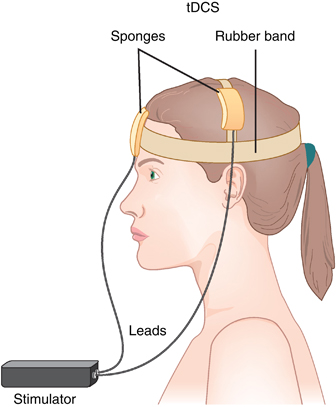Transcranial Direct Current Stimulation Improved OCD in Controlled Trial

In an abstract of a paper that was to be presented at the 2020 meeting of the Society of Biological Psychiatry in May, researcher Roseli Gedanke Shavitt described a study of transcranial direct current stimulation (tDCS) in people with treatment-resistant obsessive-compulsive disorder (OCD). TDCS is a treatment in which electrodes applied to a patient’s scalp provide a constant low level of electricity that can modulate neuronal activity.
Shavitt and colleagues gave 30 minutes of either active or sham tDCS for 20 days to patients with treatment-resistant OCD. They positioned the cathode over the supplementary motor area of the brain, and the anode over the left deltoid. Those patients who received active tDCS achieved significantly greater reductions in OCD symptoms than did those in the sham group.

